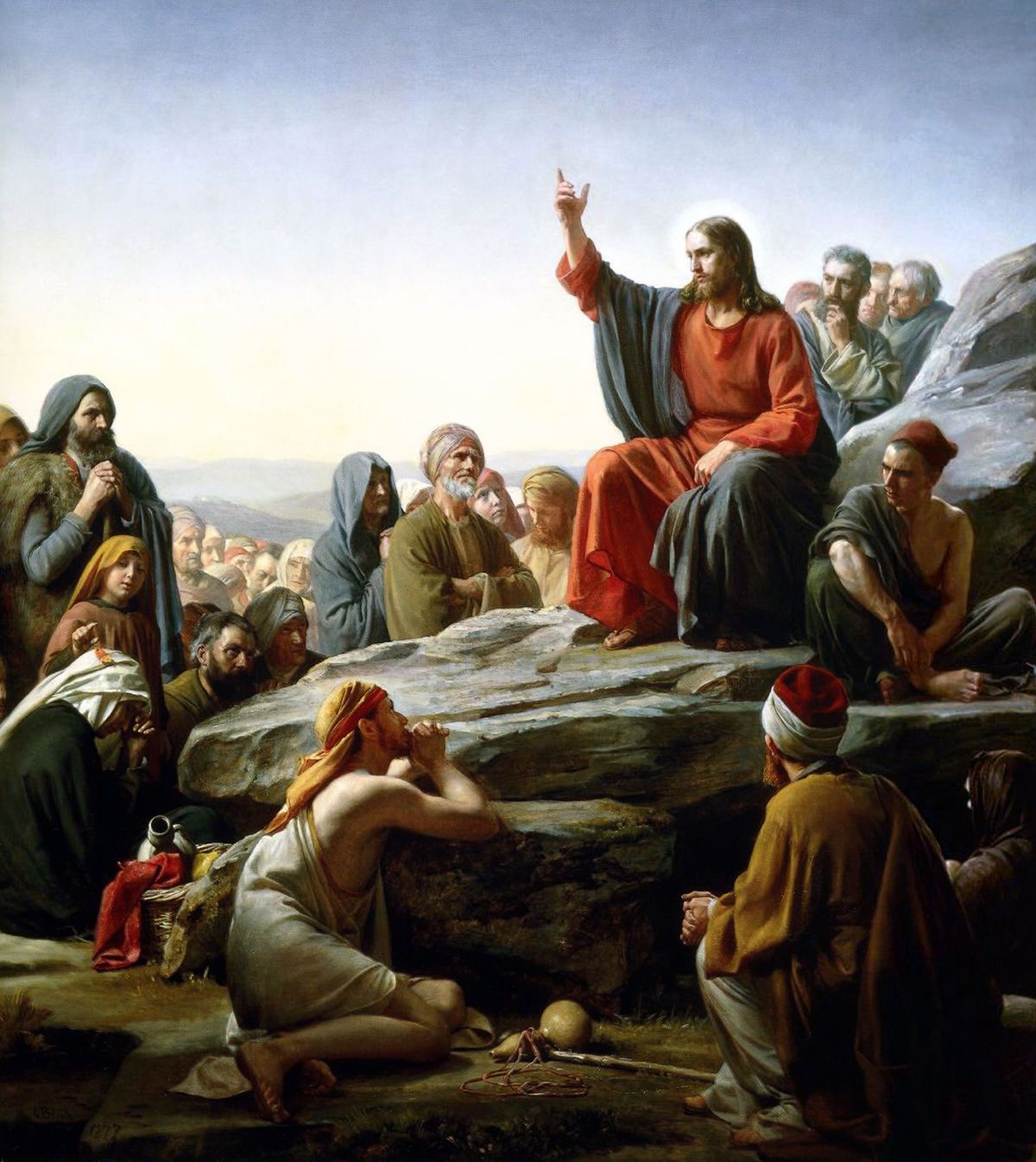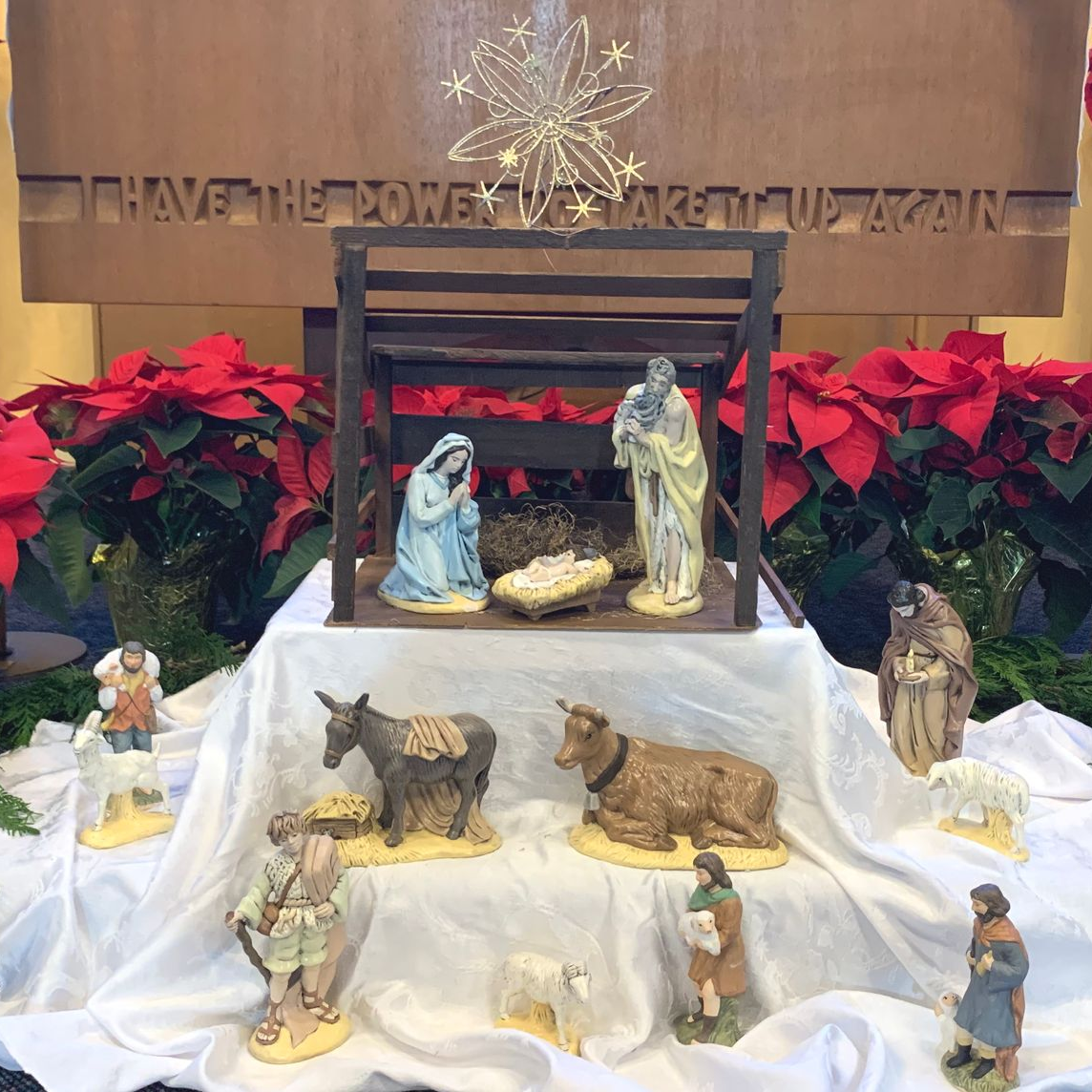Running on Empty
Don’t take the good news that we are saved by faith and turn it into the bad news of having to muster something that cannot be mustered.
2025-50
sermon preached at Church of the Good Shepherd, Federal Way, WA
www.goodshepherdfw.org
by the Rev. Josh Hosler, Rector
The Seventeenth Sunday after Pentecost (Proper 22C-Tr1), October 5, 2025
Lamentations 1:1-6 ; Psalm 137 ; 2 Timothy 1:1-14 ; Luke 17:5-10
Have you ever looked at your supply of faith and found that you were running on empty? Faith can be awfully hard to come by, especially when bad things happen to us and to those we love. Especially when we had always expected the good things in our lives to just … continue forever.
But you know, faith is a feeling. It’s not an objective condition. And it’s certainly not based on data. I noticed this when I got onto an anti-depressant a few years ago. It was just as Russia invaded Ukraine—you know, when the world went very suddenly from bad to worse. (How little we had yet experienced then!) Yet I noticed right away that I felt better. More functional. More patient. More faithful.
Now, while a little help from medication may be crucial for our day-to-day functioning, it doesn’t solve our actual problems. I can still succumb to false cheeriness or find myself numbing out on my phone. To move forward from a loss of faith, we first have to be direct and honest about our situation. And sometimes we’re straight-up running on empty.
Last week we heard about the Babylonians besieging the gates of Jerusalem. This week, in a poem from the Lamentations of Jeremiah, we hear of the aftermath of that invasion. “How lonely sits the city that was once full of people!” Jerusalem is personified here as a widow grieving deeply. We hear that Jerusalem “lives now among the nations”—outside of her own land, among all the other peoples of the world. This is a poem about becoming the Jewish diaspora.
Our psalm today also comes from that period. “By the waters of Babylon we sat down and wept.” It escalates from displacement to grief to indignation to rage: “O Daughter of Babylon, doomed to destruction, happy the one who pays you back for what you have done to us! Happy shall he be who takes your little ones, and dashes them against the rock!” Those who are truly oppressed might well cry out to God, “We want not only our enemies dead, but their babies as well!” They lack the power to take revenge, so they vent in musical form. It sounds horrible to us—and it should. That’s the point. The feelings of the people are raw and unfiltered before God, because they are running on empty.
Now, most Bible scholars agree that little to none of the Bible was written down until the Babylonian Exile. It was only once the nations of Israel and Judah were utterly destroyed that the Jews sought to preserve their traditions in written form. When they returned home in the Persian period and began to rebuild, they developed traditions that continued into Jesus’ time. But the Babylonian Exile lived on as corporate trauma. The Jews came to speak of it as the consequence of faithlessness: of failing to care for the poor and the stranger among them, and for relying on military power instead of God’s power.
But in today’s reading, the story is still in the middle of the original trauma. How does one find faith in the midst of despair? Where does faith come from?
In the Second Letter to Timothy, it seems that the recipient may be experiencing some sort of faith crisis. Paul urges him, “Rekindle the gift of God that is within you through the laying on of my hands.” Though the letter comes to us in Paul’s name, we know it to have been written long after Paul and Timothy’s generation, so maybe this is figurative. Each of us can hear, from our own generation, “Paul, our forerunner in the faith, has spiritually anointed you for service as he did Timothy, and you need to get back to work now.” This letter has become for us sacred Scripture, because so often we, too, need a dose of courage, power, love, and self-discipline.
This is important, because rekindling God’s gift of faith in us is not accomplished by navel-gazing. I remember Brene Brown saying once, “I have a yoga attitude!” Her point, of course, was that no matter how helpful you think yoga is, it will do you no good until you actually do it. We should do our inner work, to be sure, but at some point, no matter how out of kilter we may feel, we will need to get back out there again.
When I went on my medication, I became someone who addresses his depression. When I started going to the gym this summer, I finally started becoming someone who goes to the gym. Our faith works in much the same way. C.S. Lewis pointed out once that if you want to become a Christian, start by faking it. Act like you think a Christian would, and eventually, you’ll find that you’re really doing it! And that’s a whole lot better than remaining a part of the Jesus fan club, sitting on the sidelines but never getting into the game.
Now, I know that my words may ring hollow for you today if you are one of the many, many people who deal with depression. I have not been into the depths as much as lots of people I know. And the challenge of getting up off the couch isn’t necessarily about “being productive.” More important first is to be in relationship. Sometimes we need a lot of help to get back to functioning, and this comes best in the form of loving friends and family and a caring community—people who go out of their way to remember you and reach out. Even so, I remember once in a former church asking a depressed friend, “What if someone came around on Sunday morning to roust you out of your apartment?” No, came the reply. No, that would make it much worse.
It's so easy to beat ourselves up for getting bogged down. My feelings of faith are inextricable from my feelings of worthiness. But all of these are merely feelings—they come and go and shift and change with little or no warning. And so we turn to today’s gospel reading. We can read it in an unhelpful way, or in a very helpful way.
“Increase our faith!” the disciples implore Jesus. “Give us more of the stuff we need to motivate ourselves to follow you!” For once, the disciples are on the right track. They recognize that faith is a gift that comes from God, and that Jesus has the ability to bestow it. But they still don’t see the whole picture. And most of the time, neither do we.
Jesus replies, “If you had faith the size of a mustard seed, you could make a tree uproot itself and throw itself in the lake.”
“Well then, how about giving us a whole bottle of mustard, then? We don’t see the value of replanting trees, necessarily, but if we could do that, imagine all the good we could do in the world where it really matters! We could do those miracles you told us we would do! We want more faith, so that we can decide how best to use it!”
Ay, there’s the rub. If we had all the faith in the world and treated it as a source of fuel, who’s to say we would use it to make good decisions?
When Jesus’ disciples beg him to increase their faith, right now!, I think Jesus smiles and chuckles. “You silly friends, that’s not what you need! More faith might make you feel good about how you’re living your life. Faith is indeed the fuel for wondrous events. But you don’t provide the fuel here. It's not about you! Don’t try to fill your own tank. Just keep siphoning from mine.”
Friends, don’t take the good news that we are saved by faith and turn it into the bad news of having to muster something that cannot be mustered. Well, I guess faith can be “mustard” in that it’s a spicy little seed that will grow into something huge. Jesus just means that you can’t manufacture faith, and you’re not in charge of regulating its flow.
OK, this is beginning to make sense. But then Jesus says something that makes us even less comfortable: “What’s the job of a slave?”
Our 21st-century response of shock is totally justified: “Really, Jesus? Slavery? That’s your metaphor?” Well, to be fair, Jesus also used this metaphor five chapters ago, but he flipped it so that the master was seating the slave at a table and serving him a feast. Not this time. This time Jesus reminds his disciples of the way things are in their society. The slave eats only after the master has eaten. And the master doesn’t owe the slave thanks for that, because it’s in the assumed job description.
I don’t like this. Does God want us to mope around miserably, doing things because we have to, as if we were captive to some other Babylonian empire? Surely not! And Jesus doesn’t question the institution of slavery here—or really ever—though we sure wish he had. It sounds harsh to us to hear Jesus call his friends “worthless slaves.”
Well, since this is sacred Scripture, we as Christians have decided that we don’t get to throw it away. We need to wrestle with it and not let it go until it blesses us with Good News. So today, when you hear Jesus call his disciples “worthless slaves,” I recommend two things. First, don’t miss that smirk on Jesus’ face as he banters with his friends. Second, hear Jesus saying to you, “You are not being asked to write your own job description. I’ll show you what work needs to be done. And I’ll even equip you for the job.”
Also, don’t forget the words of love that Jesus speaks to his friends on nearly every other occasion, and the fact that he will wash their feet like a slave the night before he is murdered. Jesus isn’t really calling them worthless—no more than you might do when joking around with buddies and saying, “Quitcherbellyachin’, ya jerks. What, do you want a cookie?”
We do get to choose how to live our lives. We get to decide what gifts to give, and what to do with the gifts we receive. Faith builds up in us through habitual practices of trust. But faith is not a prerequisite for any of this. Your tank may read “E,” but nevertheless, just start going out of your way to love people. Then see what happens. See what miracles may result. Amen.











